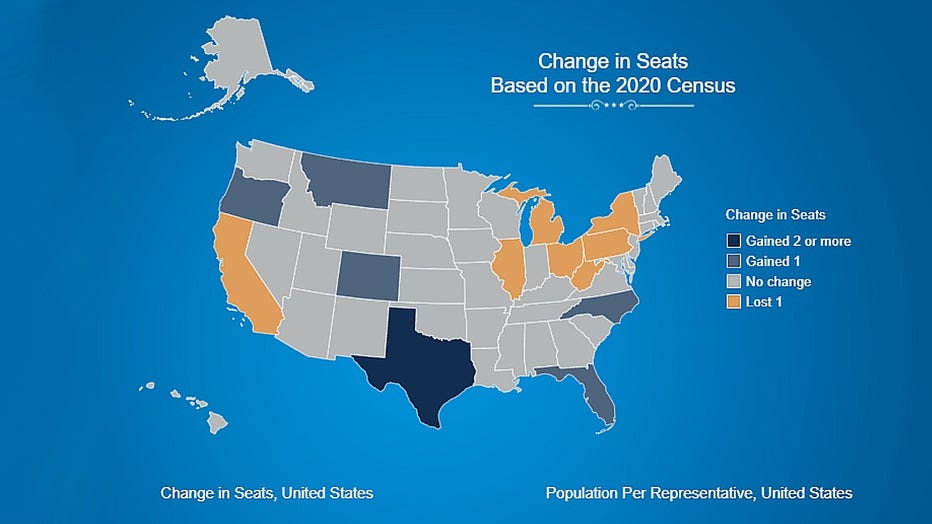U.S. Census: Florida to gain congressional seat next year, bringing total to 28

Close-up of human hand holding a letter from the Census Bureau regarding the 2020 Census
TALLAHASSEE, Fla. - With continuing population growth, Florida will gain one congressional seat next year, bringing its total to 28, the U.S. Census Bureau announced Monday.
Florida is one of six states that will gain seats after the once-a-decade census count. Texas will gain two seats, while Florida, Colorado, Montana, North Carolina, and Oregon each will receive one seat.
States that will lose one seat each are California, Illinois, Michigan, New York, Ohio, Pennsylvania, and West Virginia, according to the Census Bureau. The bureau used an April 1, 2020, population total in making the determinations.

At that point, Florida’s population was an estimated 21.57 million, trailing only California and Texas. Florida lawmakers are expected later this year to start the reapportionment process, which will lead to revamped congressional and legislative districts that will take effect with the 2022 elections.
The U.S. Census shows that the number of people living in the United States, including the 50 states and the District of Columbia, was 331,449,281 as of April 1, 2020, an increase of 7.4% since the 2010 Census.
Other highlights from the census:
- The state with the highest population increase since 2010 is Texas (up 3,999,944 to 29,145,505 total).
- The fastest-growing state since 2010 is Utah (up 18.4% to 3,271,616).
- The most populous state is California (39,538,223); the least populous is Wyoming (576,851).
- Puerto Rico's resident population was 3,285,874, down 11.8% from 3,725,789 in the 2010 Censu
The Census Bureau will provide states with the local population counts needed to redraw or "redistrict" their congressional and other legislative boundaries by September 30, 2021. The reapportioned Congress will be the 118th, which convenes in January 2023.

